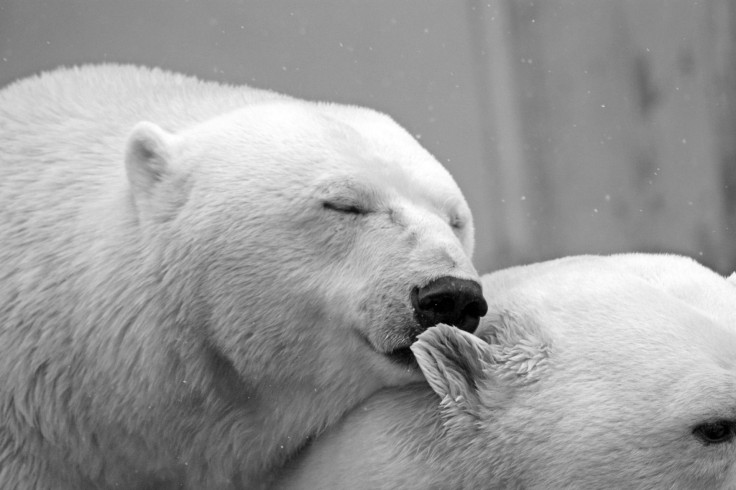Climate Change Threatens Polar Bears Using Arctic Wind To Hunt Seals

When polar bears are looking for their next meal, the wind points them in the right direction. But climate change might one day take away that crucial tool in the bears’ hunt for seals to eat.
That’s according to a study in the journal Scientific Reports, for which researchers followed dozens of adult polar bears and studied wind patterns for more than 10 years at Canada’s Hudson Bay. That large body of water in the northeastern part of the country is just outside the Arctic Circle, above the provinces of Manitoba, Ontario and Quebec and bordering Nunavut. Scientists say it is at risk if climate conditions on Earth change because, among other consequences, Arctic winds would pick up.
Read: What Do Elephants Do All Day?
Stronger winds would interfere with how the researchers have observed the polar bears there searching for food. Their study says when the bears sniff a seal on the wind, they follow the wind to its source to also find the source of the smell and their potential prey. And when they are on the hunt for a whiff of seal they walk perpendicular to the wind, across the gusts, to find a nice scent stream to take a hold of.
“Travelling crosswind gives the bears a steady supply of new air streams and maximizes the area they can sense through smell,” lead author Ron Togunov said in a statement from the University of Alberta.
And that’s especially because the time they most often move cross-wind is a time of low visibility, due to darkness: Moving cross-wind “occurred most frequently at night during winter, the time when most hunting occurs,” the study said.
Meanwhile, when fast winds that “impede olfaction” came coursing through, the bears tended to move downwind.
The reason bears use smells on the hunt is “because winds can carry odours across the complex icescape,” according to the study. Experts have known that polar bears use scent to hunt but these findings quantify that idea. And it’s been proposed that other animals use similar hunting techniques.
But if climate change caused Arctic winds to blow faster, it may interfere with polar bears’ ability to hunt using their noses. There’s also less sea ice in their environment for the animals to rely upon.
“Because of changes that are occurring environmentally, the polar bears have a decreased body condition (and) lower fat reserves,” Togunov told the Edmonton Journal. “This might be another thing that might lead to polar bears being in worse condition and more aggressive toward humans.”
See also:
© Copyright IBTimes 2025. All rights reserved.





















